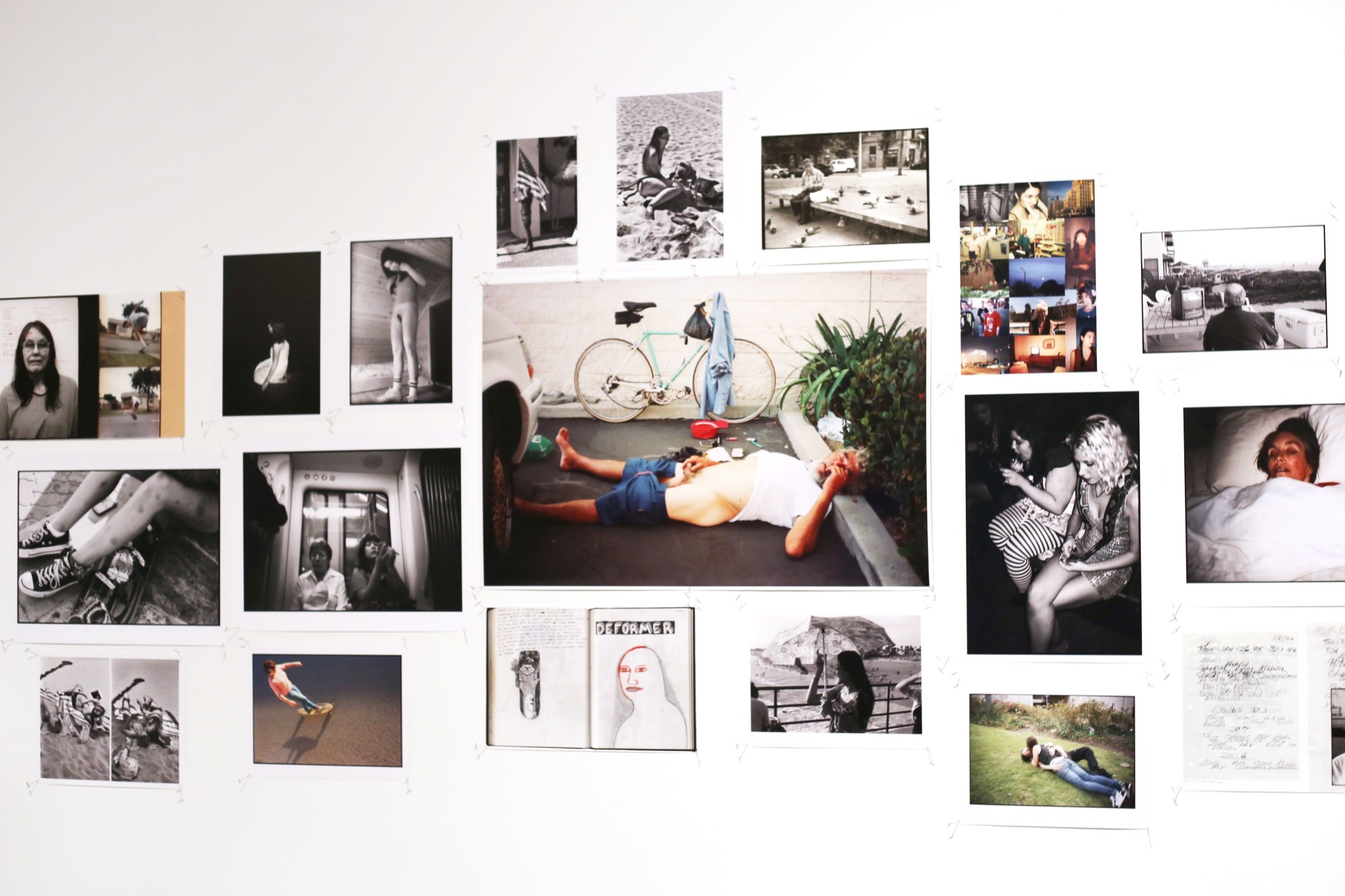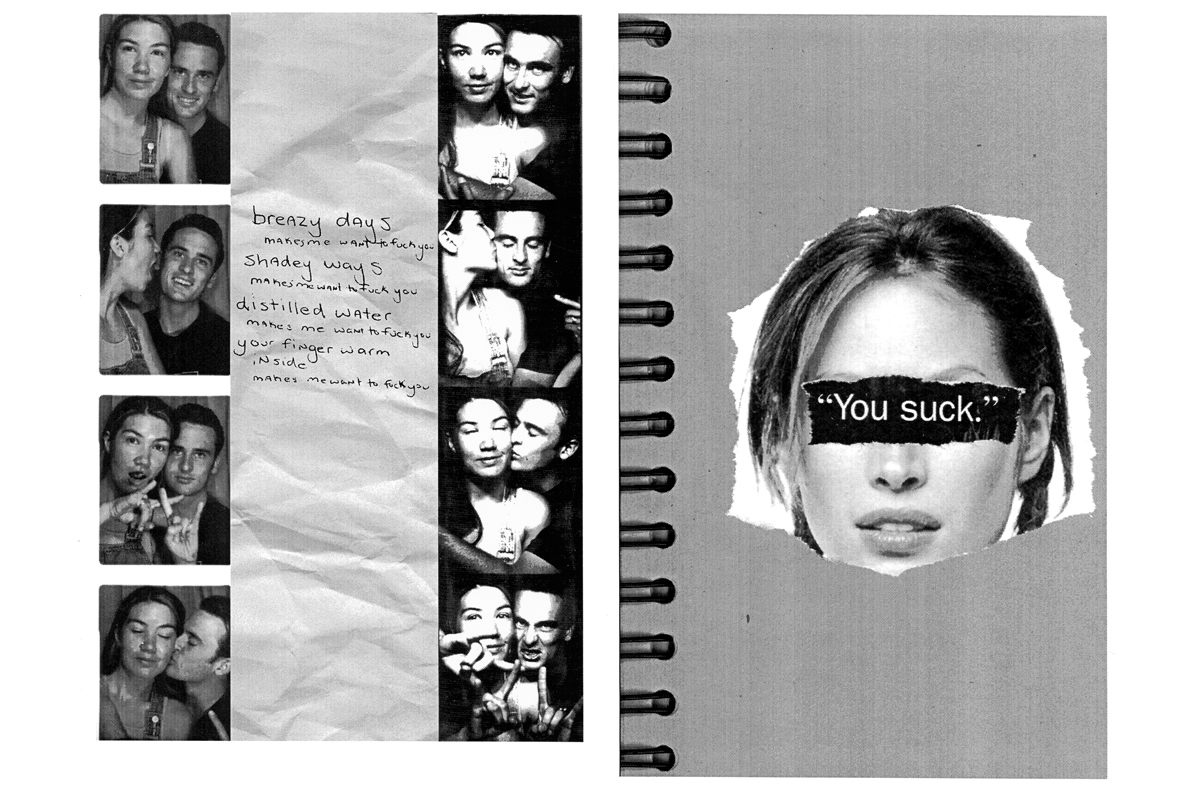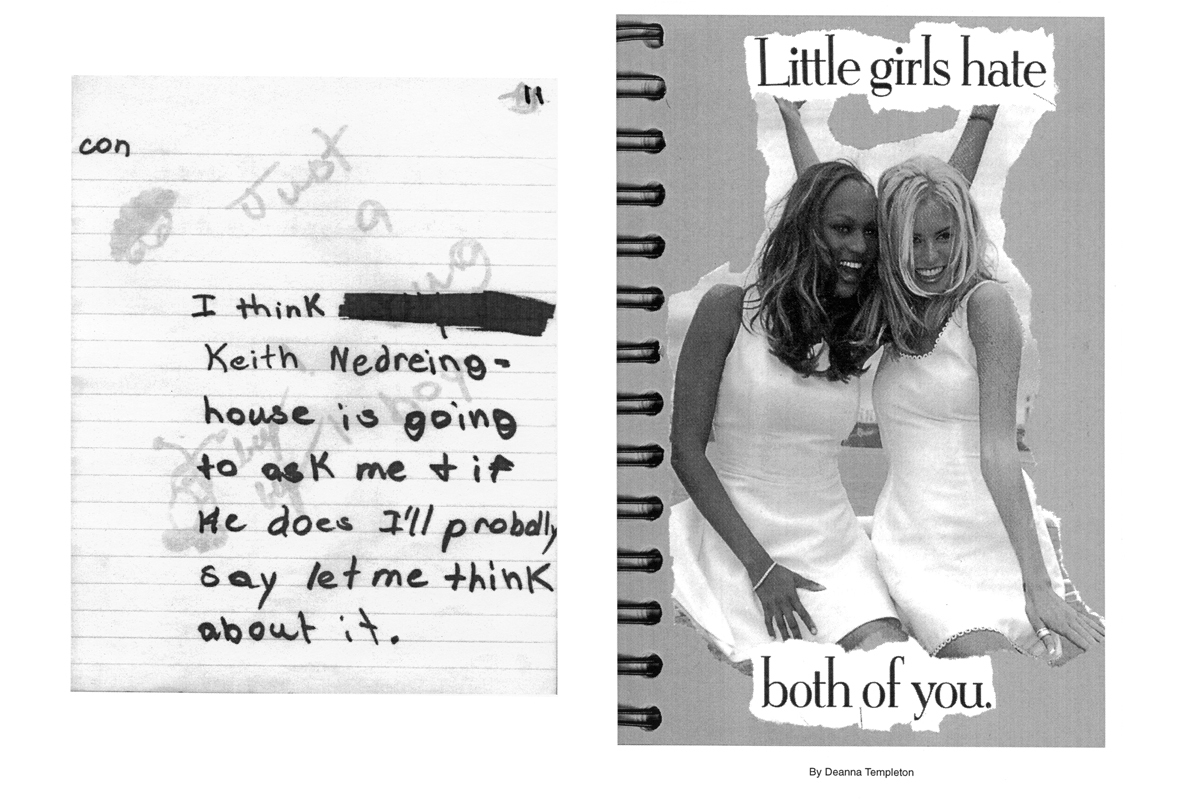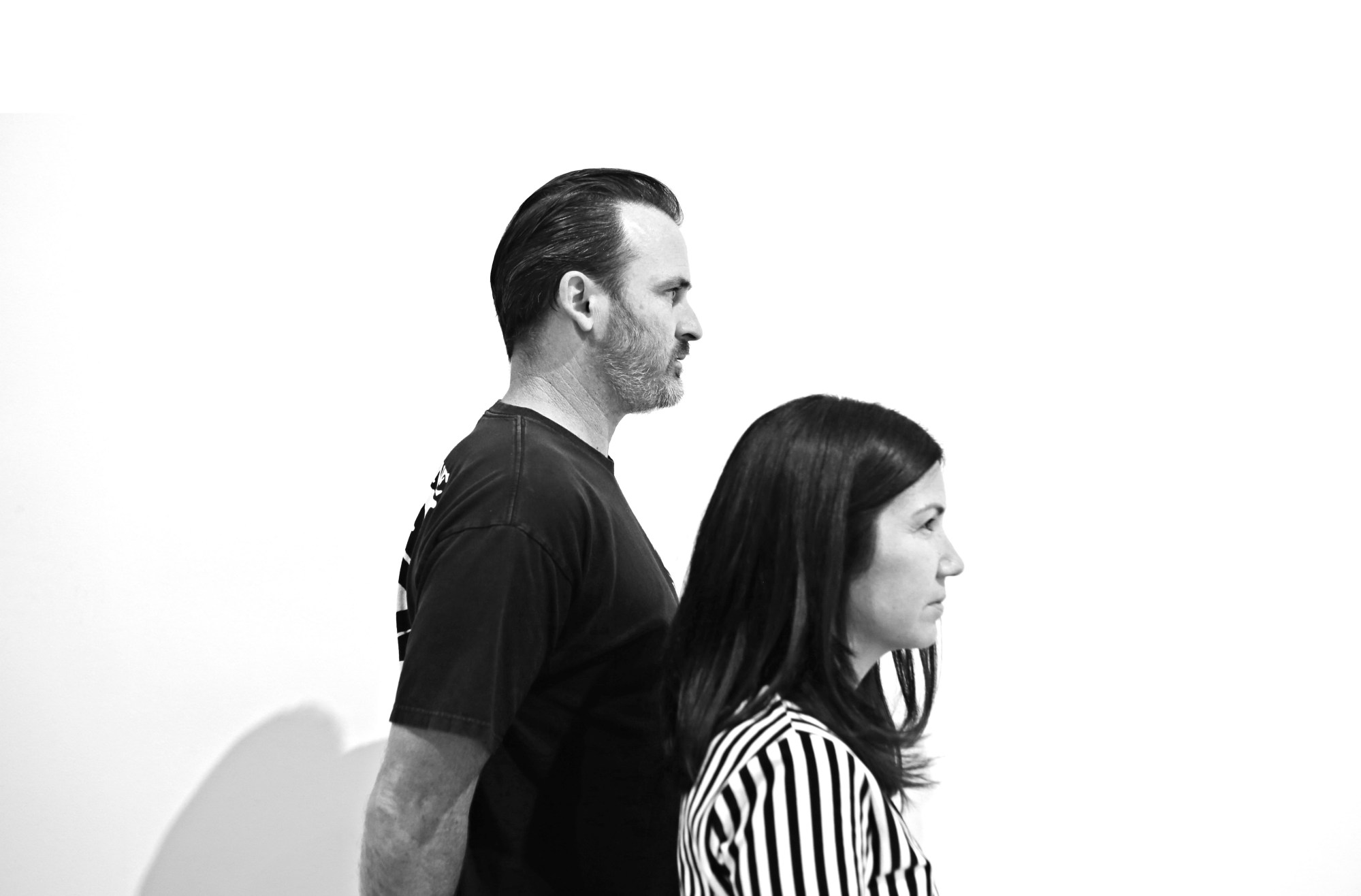Ed Templeton has been capturing candid images of bloody skateboarders and teenagers kissing since 1993, when he was still on the road as a pro skateboarder. Deanna Templeton, Ed’s wife of 23 years and a well-known street photographer in her own right, began shooting photos at punk shows back in 1985. The two, who are rarely seen without their cameras, have developed an impressive collective oeuvre. At this year’s LA Art Book Fair, they exhibited some of those works with Boo-Hooray and Deadbeat Club Press, including rare and never-before-seen zines, art books and prints. i-D spoke with them about digging through decades of work, which photographers dominate their thoughts, and meeting the frontman of their favorite band.
How would you compare a photography exhibit and a photo book?
Ed Templeton: You can really tell the story in a sequence with photo books. In theory a person is sitting down, giving it their full concentration. A show is just as good but different. We geek out on the framing, the printing, how the work’s put together. In a book you’re looking at a piece of paper; in the show you’re looking at this artwork. A lot of photographers now just have big glossy prints. You can’t really see the construction. With the older guys, you see the curl on the pages.

Which books do you repeatedly reference?
Ed: I think about Jim Goldberg’s Raised by Wolves a lot. It’s ephemera as well as photographs. He’ll write on the photos or include what his subjects had written. You get a bigger picture. I’m a sucker for people who do more than just straight photography.
Deanna Templeton: Vivian Maier gets me choked up. She’s on par with everyone — Robert Frank, Bruce Davidson. She dominates my thoughts.
Tell me about the zines you made for the fair.
Ed: Boo-Hooray published my zine More Profiles to Study, which is an offshoot of another called Profiles to Study. It sounds so ridiculous explaining it out loud. There’s no deep premise to it. I just have so many profiles that I was able to pull a bunch to make a couple of art zines. With Deadbeat Club, a collective Deanna and I are a part of, I’m doing one with people holding umbrellas. After shooting for as long as I have, I have a big archive. And I can just search keywords and hundreds of images come up. So I do these typological studies of very narrowly themed things.
Deanna, your zine They Should Never Touch The Ground was influenced by a Fugazi song about flags?
Deanna: I started shooting all of these kids in Europe who were wearing American flags. And once I got home, I noticed them everywhere.
Ed: A mutual friend used to tell Ian Mackaye of Fugazi when we went to his shows. We got backstage passes thinking they were from our friend. Finally he told us they were actually from Ian. I was so petrified to meet him and I think he could tell I was nervous. I was like, “Eh hi, someone told me I should come say hi to you.” He was like, “Oh hey Ed Templeton, I read all of your interviews. I’m a big fan.” It was crazy. Ever since, he’s had me email him any time I see a show.
Deanna: When I chose the title for my zine, which comes from the song Facet Squared, I checked in with Ian to make sure that using it was okay. He emailed right back with the song’s background and we included it in the zine.

Do you think the Internet has rendered zines obsolete?
Ed: A webpage can’t take the place of that tactile object. Although zines have changed a lot from the original idea, when kids out in the middle of nowhere would make their own artwork knowing Artforum’s not giving them the time of day. So they went and got it photocopied and distributed it to their homies.
Deanna: I’d make mine with my inkjet printer. And then a lot of the stores started doing consignment, which really helped to get work out there.
Ed: Now zines are global and commodified. We make them and sell them through a website.
Are the glossy versions sold on Deadbeat Club’s site still technically zines?
Ed: I guess I’m trying to figure that out myself. A true zine is really something that’s handmade. But there are no rules. Everyone should just do what they want and that’s what’s fun about it. This whole fair is an example of that. It’s so great to look at all the different stuff. It’s evolved into so many tiers. I’ve strayed from the original idea and I think I’m ready to go back old school.

Credits
Text Paige Silveria
